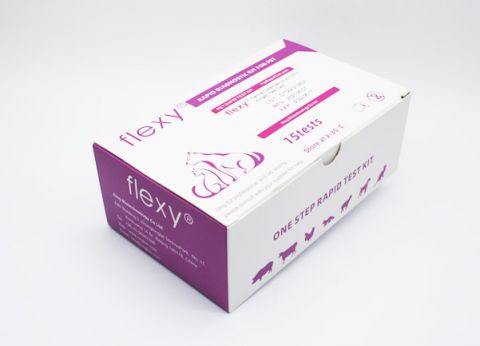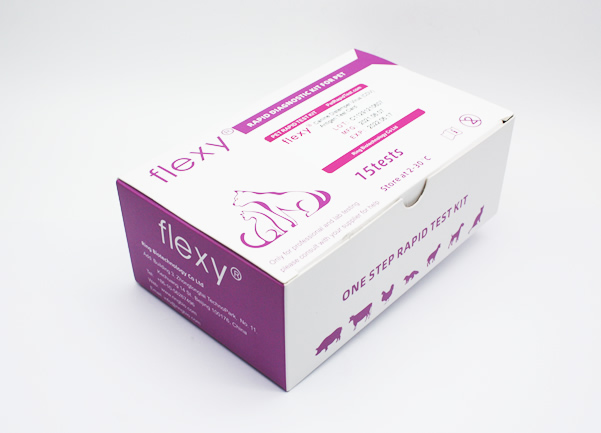
This Canine influenza Virus CPIV Ag Rapid Test Kit is based on immunochromatographic assay to detect CIV Ag in canine nasal secretion, which is rapid, accurate and easy-to-operate.
Basic information
Canine influenza ( dog flu) is influenza occurring in canine animals. Canine influenza is caused by varieties of influenzavirus A, such as equine influenza virus H3N8, which was discovered to cause disease in canines in 2004. Because of the lack of previous exposure to this virus, dogs have no natural immunity to it.
Key facts of the Canine influenza Virus CPIV Ag Rapid Test Kit
- Ready to use kits for pet owners and vet clinic
- No special instrument required
- Suitable for field test
- Result in 10min.
Canine influenza Virus CPIV Ag Rapid Test Kit Components
| Item # | Item | Qty |
|---|---|---|
| 1 | Rapid Test Card | 15 pcs |
| 2 | Sample buffer tube | 15 bottles |
| 3 | Plastic pipettes, 0.5ml | 15 pcs |
| 4 | Kit instruction, | 1 set |
What are the symptoms of canine influenza?
According to CDC website, the signs of this illness in dogs are cough, runny nose, fever, lethargy, eye discharge, and reduced appetite, but not all dogs will show signs of illness. The severity of illness associated with canine flu in dogs can range from no signs to severe illness resulting in pneumonia and sometimes death.
Most dogs recover within 2 to 3 weeks. However, some dogs may develop secondary bacterial infections which may lead to more severe illness and pneumonia. Anyone with concerns about their pet’s health, or whose pet is showing signs of canine influenza, should contact their veterinarian.
How is canine influenza virus spread?
Almost all dogs are susceptible to canine flu infection, and virus infection tends to spread among dogs housed in kennels and shelters. Canine flu is thought to spread mainly among dogs through respiratory droplets produced during coughing and sneezing from infected dogs, or through contact with contaminated surfaces. Therefore, dog owners whose dogs are coughing or showing other signs of respiratory disease should not expose their dog to other dogs or to cats. Clothing, equipment, surfaces, and hands should be cleaned and disinfected after exposure to dogs showing signs of respiratory disease.
Is there a test for canine influenza?
Testing to confirm H3N8 and H3N2 canine influenza virus infection in dogs is available. Your veterinarian can tell you if testing is appropriate.
How is canine influenza in dogs treated?
Treatment largely consists of supportive care which helps to keep the dog hydrated and comfortable while its body then mounts an immune response to the infection to facilitate recovery. In the milder form of the disease, this care may include medication to make your dog be more comfortable and fluids to ensure that your dog remains well-hydrated. Broad spectrum antibiotics may be prescribed by your veterinarian if a secondary bacterial infection is suspected.
Is there a vaccine for canine influenza?
Vaccines to protect dogs against both H3N8 and H3N2 canine flu are available in the United States. Your veterinarian can provide additional information about these vaccines and whether you should consider vaccinating your dog.




